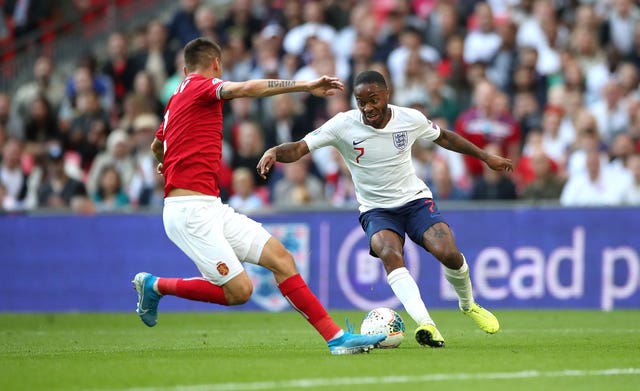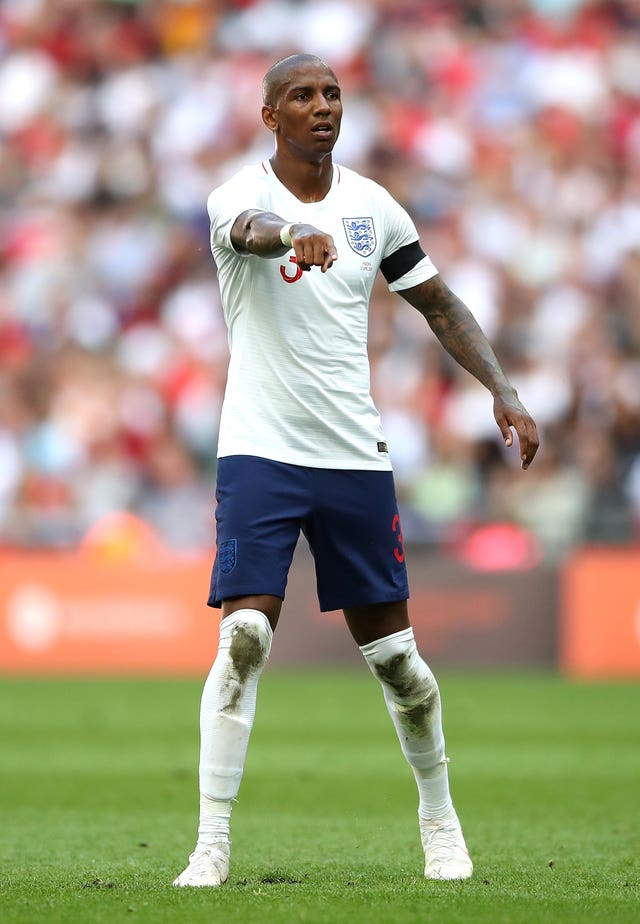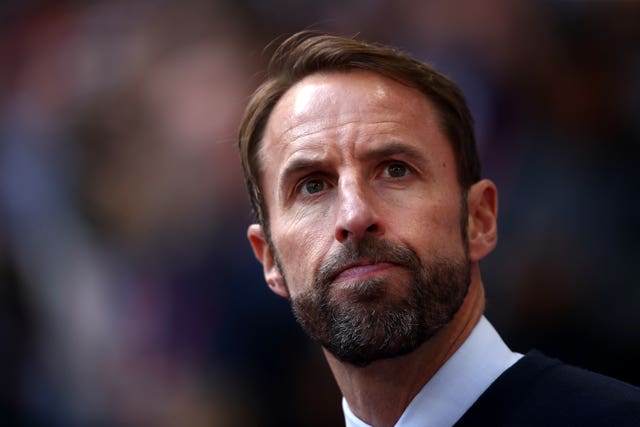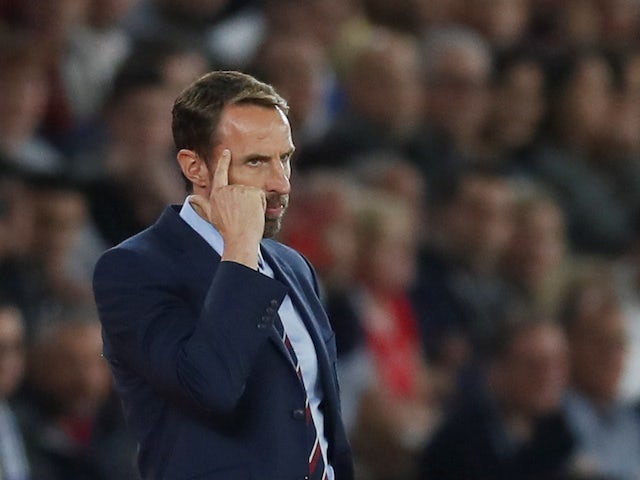Raheem Sterling was the target of alleged racist abuse from a Bulgaria fan during England's Euro 2020 qualifier at Wembley – and Gareth Southgate fears his players could be subjected to more in next month's return fixture in Sofia.
The PA news agency understands that the 24-year-old, a key figure in the fight against racism, was the focus of discriminatory language during the first half of Saturday's match at the national stadium.
A steward heard the individual in the Bulgaria section of the ground and they were ejected from Wembley and handed to the police.
The Metropolitan Police has confirmed to PA that the male was arrested and taken to a north London police station on suspicion of an aggravated public order offence. Following enquiries, he was released with no further action.
A spokesperson from the Football Association said: "We can confirm that an individual, who was seated in the away section of the stadium, was ejected and subsequently arrested for discriminatory abuse during the England v Bulgaria match.
"Wembley Stadium operates a zero tolerance policy on anti-social and discriminatory behaviour and anyone found guilty will be ejected and reported to the police."
PA understands that nothing was said to Sterling about the incident during the game, with the FA's security team speaking to the forward after the 4-0 win to make him aware of the process.

UEFA was informed of the incident through its matchday delegate.
It is a sad but all too familiar story, with Sterling and his England team-mates subjected to racist abuse during March's Euro 2020 qualifier in Montenegro.
The Football Association of Montenegro were ordered to play their next match behind closed doors and manager Southgate fears similar abuse in Bulgaria.
"Yes, it is a concern," the England boss said looking ahead to the October encounter. "It's something that we've already planned.
"We've already planned what our schedule looks like and we're going to discuss it with the players before we go, because we're aware that there is history there and we want to make sure that we're all prepared for what might happen and how we want to respond.

"So, we are going to address that when we all get back together. We didn't think it was right to do it this month because it's too far away from the games, but we have to hope... we're not confident that we'll go there and nothing will happen."
Next month's qualifier will be England's first trip to Bulgaria since September 2011, when a 3-0 win was overshadowed by racist abuse in Sofia.
Ashley Young was subjected to monkey chants during that game, but the Bulgarian Football Union (BFS) only received a 40,000 euros (£34,000) fine by UEFA for "discriminatory" chanting and for the lighting and throwing of fireworks.
The Vasil Levski National Stadium will already be partially closed for England's latest visit due to the racist behaviour of their supporters in the 2-1 loss in the Czech Republic in June.
The BFS is required to block off at least 5,000 seats for the visit of Southgate's men and display a banner with the wording '#EqualGame'.
Bulgaria's return fixture against the Czechs is also due to be played at a partially-closed ground due to racist behaviour in the 3-2 home loss to Kosovo in their other June fixture.
And just last month, Bulgarian sides Levski Sofia and PFC Lokomotiv Plovdiv 1926 were both ordered to play their next UEFA matches in partially-closed stadiums due to racist behaviour in their respective Europa League qualifiers.
It is a depressing state of affairs, as are the concerns surrounding England fan behaviour on the trip to the Czech Republic in the days leading up to the trip to Bulgaria.

UEFA's scheduling of the Group A qualifier in the party city of Prague on a Friday night has set off alarm bells, with the FA's head of security Tony Conniford raising concerns over the timing of the match following issues at the Nations League.
Fan disturbances involving some England supporters in Portugal over the summer compounded flare-ups in Amsterdam and Seville last year, with Southgate saying "it's sad we have to appeal" to those going to behave.
"It should be a given – sadly it isn't," he said. "Sadly, we are going to a place where people go, travel anyway for nights out from our country. What we don't need to see is behaviour that I am afraid happens on our own high streets, so it is not something that is just England supporters.
"I'm afraid that it is a societal issue of people with alcohol unable to control themselves. But we certainly don't want to be taking that abroad and that being a representation of our country."
No Data Analysis info








